93 years ago today, perhaps the greatest American whistleblower in history, Daniel Ellsberg was born. In March of last year, Ellsberg revealed to the media he had been diagnosed with terminal cancer, and passed away before the year was out. Ellsberg was the man who leaked a top-secret Pentagon study of the U.S. government’s decision-making during the Vietnam War, which came to be known as the Pentagon Papers. It revealed that everything told to the American people and the world besides regarding the war was a lie, and the whole operation was characterized by immense negligence of American commanders. READ more about this great American, and what we know as a result of his heroism… (1931)
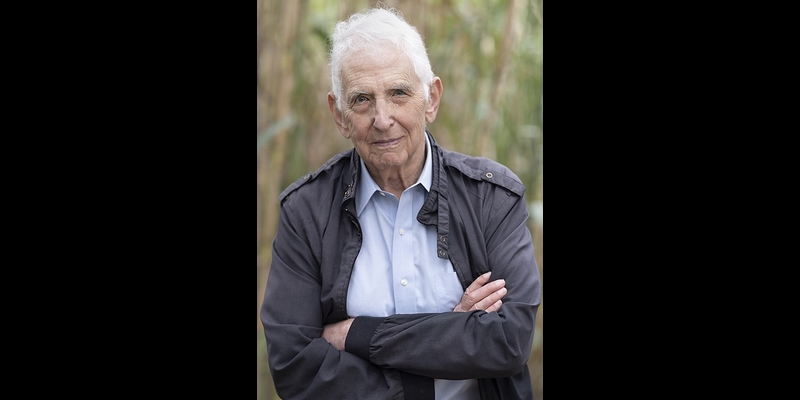
Charged by the federal government under the 1917 Espionage Act, the case was thrown out by Judge William Matthew Byrne Jr. Critically, however, the case was thrown out because of gross government misconduct during the trial, and not on the content of Ellsberg’s defense—namely that the information was classified illegally to deceive the American people.
Indeed, Bryne Jr. dismissed that defense as “irrelevant” causing Ellsberg’s attorney to remark he had never heard of a case where a defendant was prevented from explaining to the jury why he did what he did.
Afterwards, Ellsberg became a passionate antiwar activist, releasing more classified information in books, such as The Doomsday Machine: Confessions of a Nuclear War Planner, in which he revealed for the first time that, despite what history had led the American people to believe, the authority to launch a nuclear first strike during the Cold War had been delegated as far down the chain of command as colonels and rear-admirals. The so-called “nuclear football” carried around by the president was simply a charade.
Coinciding with the book’s release, Ellsberg infuriated the State Department and Pentagon again, this time under Biden’s Administration, by leaking classified information that showed the US had nuclear missiles deployed to Taiwan in the 1958 Taiwan Straits Crisis which showed they were ready to launch a nuclear attack against China over Taiwan, even though it meant starting a nuclear war with Russia, and the subsequent mutually-assured destruction to follow.
In an interview with the New York Times about his terminal cancer diagnosis, he said his life had been one continuous string of satisfaction, and that his only regret, he believed, was that he was leaving the world at a time when the risk of nuclear war as great as when he blew the whistle. His hope was that Americans would continue his work of trying to steer the government towards being an agent of peace, by holding them accountable for their crimes.
More Good News on this Date in History:
- “Prohibition” against drinking beer was ended in the US, and the return of the malty beverage is celebrated on this day as, Brew Year’s Day (1933)
- The World Health Organization was established by the United Nations and has gone on to rid the world of killer diseases like smallpox, and thanks to 150 offices in 194 Member States, 6 million fewer children died before their fifth birthday than in 1990 and polio is on the verge of eradication—with measles, malaria, and guinea worm eliminated from many countries (1948)
- Happy 59th Birthday to filmmaker and actor Russell Crowe (1964)
- Soviet leader Mikhail Gorbachev declared a moratorium on the deployment of middle-range missiles in Europe (1985)
- Vermont became the fourth state to legalize gay marriage (2009)
- The U.S. Senate confirmed Ketanji Brown Jackson to the Supreme Court, making her the first Black woman to serve on the nation’s highest court (2022)
23 years ago today, NASA launched the “2001 Odyssey” probe to Mars. Named after Kubrick’s classic sci-fi film, its mission was to use spectrometers and a thermal imager to detect evidence of past or present water and ice, as well as study the planet’s geology and radiation environment.
That mission was a success over a period that elapsed 32 months after it arrived in orbit around the Red Planet, and has continued on for 17 years and 7 months, still transmitting valuable data as the oldest craft on or around Mars, and the second oldest serving spacecraft in the solar system.
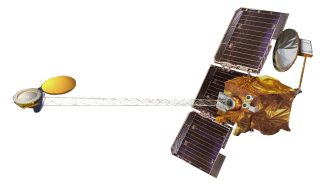
By 2008, Mars Odyssey had mapped the basic distribution of water below the shallow surface. The orbiter also discovered vast deposits of bulk water ice near the surface of equatorial regions.
Observations from November 2015 yielded insight into the composition of the ground and temperature-driven processes, such as warm seasonal flows observed on some slopes, and geysers fed by spring thawing of carbon dioxide (CO2) ice near Mars’ poles.
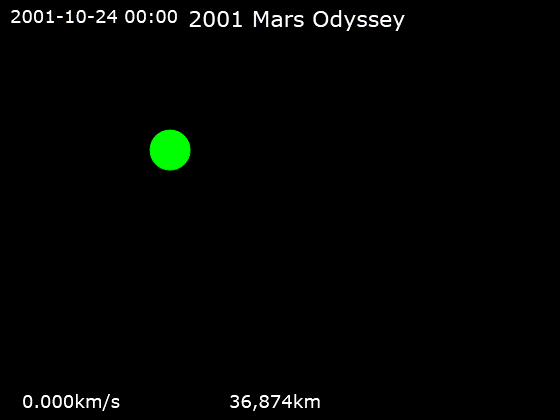
Along with discovering water and geological features, Odyssey has functioned as the relay between NASA and her twin rovers Spirit and Curiosity, through which around 85% of communications have been possible. (2001)
Also, 109 years ago today, the jazz singer-songwriter Billie Holiday was born.
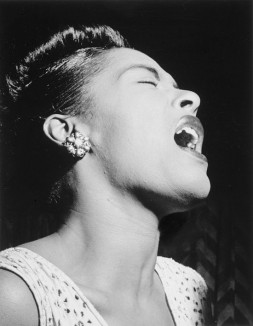
Nicknamed “Lady Day,” Holiday’s vocal style, strongly inspired by jazz instrumentalists, pioneered a new way of manipulating phrasing and tempo. In the late 1930s she recorded “Strange Fruit”, a song based on a poem about lynching. Her autobiography, “Lady Sings the Blues,” also the title of a 1956 LP, was later turned into a movie starring Diana Ross. She died at age 44. (1915)
And, 68 years ago today, the first rock & roll show to be regularly scheduled, and nationally-broadcast, premiered on CBS Radio Network.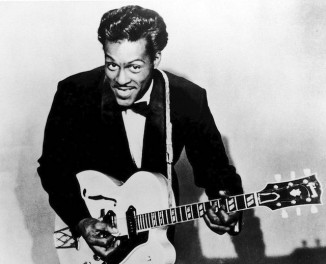
Alan Freed’s ‘Rock ‘n’ Roll Dance Party’ was hosted by the DJ who first promoted the new musical genre. Often called “the father of rock ‘n’ roll,” Freed introduced the phrase “rock and roll” in the early 1950s and said, “Rock and roll is a river of music that has absorbed many streams: rhythm and blues, jazz, rag time, cowboy songs, country songs, folk songs. All have contributed to the big beat.” (1956)
And, Happy Birthday to Francis Ford Coppola, one of the greatest filmmakers of all time, who turns 85 today. His bout with polio as a youngster in Queens spurred Francis to develop his imagination and produce puppet theater plays. Though also gifted in engineering and music, he chose drama and film majors in college and soon won 6 Academy Awards, for The Godfather (Best Picture and Screenplay), for The Godfather Part II (Best Picture, Director, and Screenplay), and for his screenplay on the film Patton.
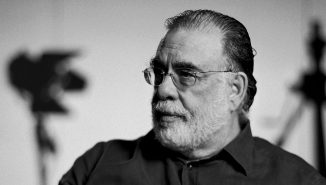
Coppola announced last year that he would begin production on his epic magnum opus, Megalopolis. “Utilizing all I have learned during my long career, beginning at age 16 doing theater… it will be a production on a grand scale with a large cast. It is not within the mainstream of what is produced now.”
Coppola wrote Megalopolis in the early ‘80s and later shot some second unit footage for the film before the terrorist attacks of 9/11 halted the project because the script contained scenes that would be disturbing in the aftermath. The story is about a remarkable architect who wants to redesign New York City into a modern utopia (but has to fight against a nemesis, the city’s conservative mayor)—and Coppola has his eye on Jude Law, as well as many other big names to star in the expansive film.
Since his last film in 2011 (Twixt), Coppola has been busy as the owner of multiple resorts, cafes, a literary magazine, a line of pasta called Mammarella Foods, and three wineries, The Coppola Winery in Geyserville, California, a family destination containing a restaurant, swimming pools, and a museum of his movie memorabilia, including Vito Corleone’s desk. Most recently he put his family name on new organic strains of marijuana. (1939)
Also an author of books, Coppola has the distinction of being one of only 8 filmmakers to have won the Cannes Film Festival’s Palme d’Or twice—for The Conversation, which Coppola directed, produced, and wrote, and his next film, Apocalypse Now (1979), a vivid depiction of insanity in the Vietnam War. (1939)
And, celebrate International Cloud Lovers Day. It’s a day to look up at the sky, wherever you are on planet Earth, and spend a few moments appreciating the beauty and splendor of clouds.
An event planner from Boston, Danny Bloom, co-created the celebration while living in Taiwan. A new blog features great cloud photos, a cloud-spotter app, and much more from the Cloud Appreciation Society. (2007)
And, 133 years ago today, the toy-making entrepreneur and founder of LEGO, Ole Kirk Christiansen, was born.
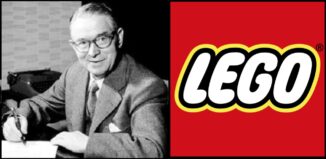
The tenth child of an impoverished family, the little Danish boy became fascinated with whittling wood, and later trained to be a carpenter.
At age 25, he used his savings to buy a woodworking shop which rose to be a huge success, but it later burned to the ground, along with his home. Persevering, Kristiansen decided to expand his business and build a larger workshop, which, by 1930, employed a small workforce building household products—but the Great Depression hit Denmark and his business slipped into bankruptcy. Still, he refused to stop producing his favorite product: toys. He decided to establish a company that exclusively made products for the development of children.
With this turning point, Kristiansen effectively defined the core philosophy of LEGO, and named it for the shortened form of the Danish words for ‘play well’—Leg got. He had found his purpose, realizing it was “a choice between carpentry and toys”. READ more about the inspiring man who never saw LEGO become a success, but whose motto of quality lives on…
In 1947, the company made a bold move, purchasing a plastic injection molding machine, which was so expensive that it cost more than twice the previous year’s profits. Within two years they were producing a plastic product called the Automatic Binding Brick. Ole’s son Godtfred (who had accidentally ignited the fire 26 years earlier) began the decade-long focus on the development of their plastic brick. Despite poor sales in the early 1950s, the company never gave up on the plastic brick—and eventually used the right ingredient to achieve the necessary ‘clutch power’ or friction that holds two bricks together. Their design for the Lego brick was patented in Copenhagen in 1958, but weeks later Ole Kristiansen had a heart attack and died at the age of 66, before LEGO’s foundational “System of Play” was launched.

Despite the many setbacks he experienced over the years, he never cut corners and always emphasized the importance of quality in production with his motto, “Only the best is good enough.” Famously, when the company was still producing wooden toys, his son boasted about using only two coats of varnish, instead of three, on a batch of their popular wooden ducks to save money. His father forced him to fix his mistake. Godtfred, the new CEO carved the words “Det bedste er ikke for godt” on a plaque, which today inspires the staff at the entrance of the Billund headquarters of The Lego Group.
In the first half of 2015, Ole’s namesake became the world’s largest toy company by revenue—with sales amounting to $2.1 billion, surpassing Mattel. (1891)
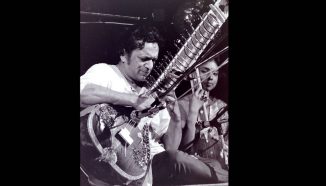
And, on this day 104 years ago, the sitar maestro Ravi Shankar was born. The Indian musician and Hindustani classical composer was perhaps best known as a major influence on The Beatles’ George Harrison. Introduced to Shankar’s music by The Byrds and David Crosby, these artists helped popularize the use of Indian instruments in pop music, and Ravi’s popularity surged. In 1967, Shankar performed a well-received set at the Monterey Pop Festival and his live album from the show hit No. 43 on the Billboard chart—and led to his performance at the Woodstock festival.
Shankar won five Grammys including for Album of the Year awarded to The Concert for Bangladesh (with George Harrison), two for Best World Music Album (nominated alongside his daughter Anoushka once), and a Lifetime Achievement Award. His other daughter is singer-songwriter and 9-time Grammy winner Norah Jones.
Ravi composed for sitar and orchestra, and toured the world in the 1970s and 1980s. In the 90s he also served as a member of the upper chamber of the Parliament of India, then moved to California and continued to perform until the end of his life in 2012.
Listen to Traces of You, from the LP of the same name by Anoushka Shankar & Norah Jones:
WATCH his two daughters play sitar and sing to honor their father… (1920)
SHARE the Milestones, Memories, and Music…




















[…] post Good News in History, April 7 appeared first on Good News […]
[…] Source: Good News in History, April 7 – Good News Network […]
[…] Posted From: https://www.goodnewsnetwork.org/events060407/ […]